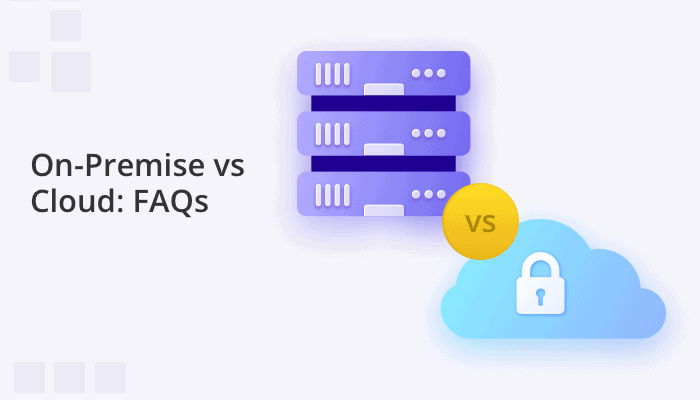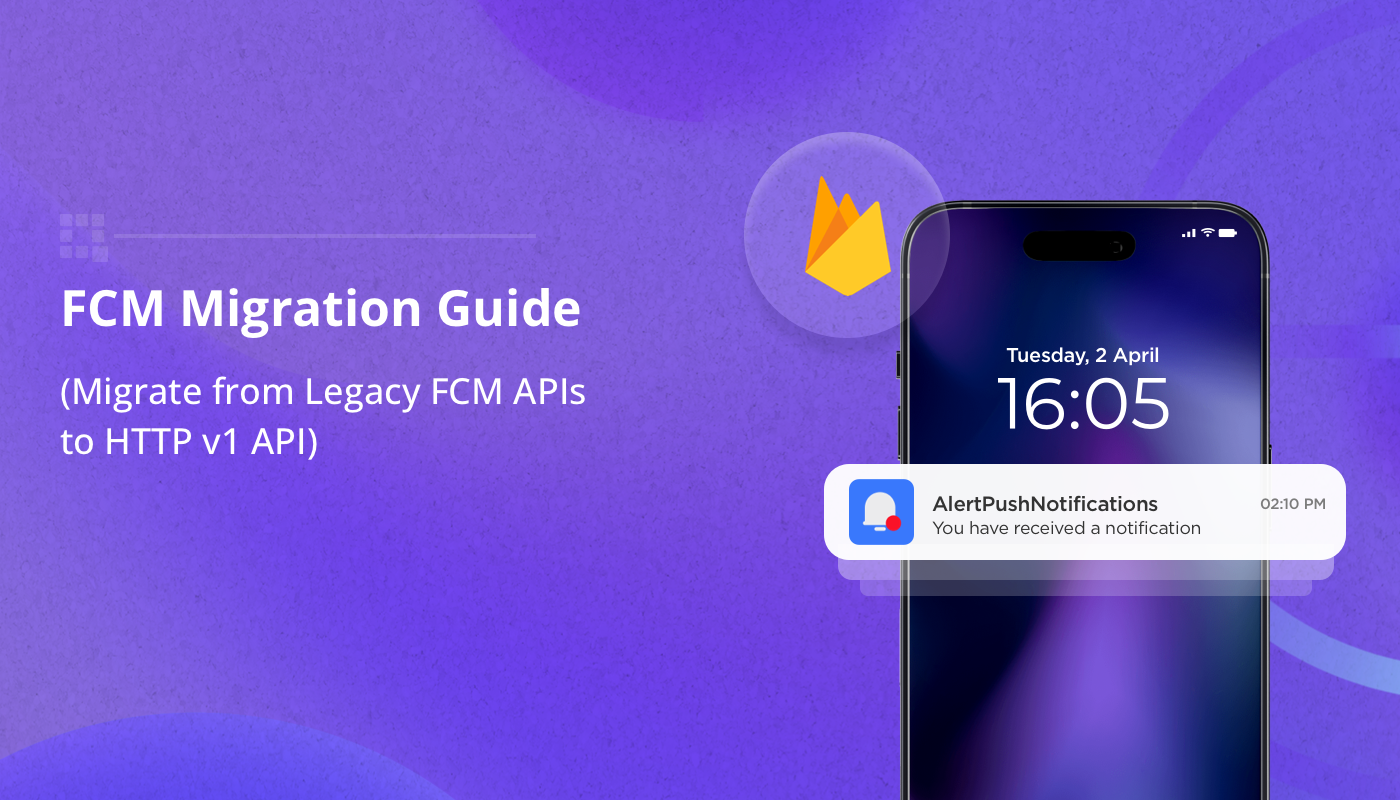
This article has been updated since it was first published in 2020.
Choosing the right hosting environment to run your application and store customer data is no simple feat for business owners. First, is the difficult task of cutting through the jargon: on-premise solutions, public and private cloud-based servers, hybrid cloud solutions – what does this all mean? A second difficulty is working out the best solution to meet your specific needs. Which deployment option you choose will be determined in large part by several pressing and oftentimes competing needs related to security, regulatory mandates, DevOps technical resources, and budgetary constraints. The third challenge is matching up what you are looking for, with what’s on offer. This can get confusing because organizations often use similar terminology to mean different things.
QuickBlox, a communication software provider that offers easy-to-integrate feature-rich SDKs and APIs, has long offered several deployment options including on-premise hosting and cloud solutions. We have compiled here a list of some of the frequently asked questions from business customers to help guide you through this tricky terrain.
FAQs
What is on-premise installation?
In its purest definition, on-premise means that software is monitored, managed, and maintained from within a company on the company’s own hardware and physical server. The customer chooses the geographic location for their data center and because they are not reliant on a third-party cloud provider, only they and their recipients can access their application. In this deployment strategy, the customer retains physical control over their server and data.
What are the benefits of on-premise hosting?
Simply put, the on-premise installation provides the highest level of security because data is stored on their own on-premise server hardware, in their own secure data centers. In an on-premise environment, businesses enjoy complete control over their systems and maintain 100 percent privacy.
Who is on-premise best suited for?
Tightly regulated industries like insurance, banking, and the financial industry that need to comply with stringent security requirements, government organizations dealing with sensitive data, and certain geographies which are required by law to ensure all customer data are locally stored especially benefit from an on-premises environment.
Learn more about: On-premises or cloud hosting for banking and finance
Does QuickBlox offer on-premise deployment?
We take pride in the fact that we are one of the few communication providers around that can offer a genuine on-premises solution. Our highly skilled DevOps team has rich experience configuring on-prem installations for banking and telecommunication industries, as well as businesses in the Middle East who operate under strict regulation to store data within their own servers.
Given the nature of on-prem deployment, most of our clients prefer to restrict our access and depend on their own DevOps team to manage their infrastructure. However, we are always on hand to provide assistance, whether that involves BlackBox monitoring, general trouble-shooting, or providing detailed customized guides for monitoring and debugging. We work closely with your DevOps and info-security team to determine the right level of monitoring and support for you.
Learn more about: QuickBlox Hosting: Shared Server, Enterprise Cloud Hosting, and On-Premises
What is cloud hosting?
This is when a business owner chooses to rely on a third-party cloud hosting provider -like AWS – to run their application and store customer data. Customers still enjoy a considerable level of control and access to their cloud-based software and data but without incurring the high costs involved with an on-premise setup. Along with paying a subscription fee for software licenses, customers will also need to pay a monthly cost for renting a hosting environment, but the outlay of money will still be considerably lower than the capital expense needed for an on-premises environment.
What are the benefits of cloud services?
There are several benefits to cloud computing for business owners. Noticeably it takes less time and upfront costs to get your instance set up. In general, far less capital and technical resources are needed than compared with an on-premises environment. Also, a cloud-based server is very secure and easier to scale. However, you do need to have a reliable internet connection to maintain 24/7 access to your instance.
Learn more about: Advantages of enterprise hosting for secure chat
What is the difference between private and public cloud hosting?
From a business standpoint the key differences ultimately come down to the level of security and money involved. Going with a private cloud service provider is an expensive option, but you’ll be set up with your own isolated infrastructure which ensures the highest level of security. A more popular and cost-effective option is choosing a public cloud environment like AWS, GCP, or Azure, where you share the same data center with other users. Alternatively, you might want to consider a hybrid solution where you split your software solution between public and private clouds as this can prove a more economical option.
What cloud hosting options does QuickBlox offer?
Our cloud hosting options offer considerable choice and control. We will install, manage, and monitor software whenever you choose to have it deployed. Currently, our customers choose cloud service providers among Oracle, Alibaba, Microsoft Azure, Digital Ocean, Google Cloud, AWS, so there’s plenty of choices. In this regard, our cloud deployment solution offers something very distinct from most other communication providers who manage their customer’s data within their own cloud (not their customers). If choosing your own cloud-based services is a key factor for you, then choose QuickBlox.
We offer 24/7 monitoring, management, and support with an SLA, but again it’s up to the customer to determine how much access they grant us.
For a total hassle-free option you can choose to use our software within our QuickBlox managed cloud, hosted by AWS. This means you will only have to deal with us and not have any interactions with a third party. We’ll take care of installation, monitoring, and updates so you can focus exclusively on developing your application and business.
Find out more about: QuickBlox hosting options for Enterprises
Is private cloud hosting the same as on-premise deployment?
No. Some people refer to private cloud hosting as on-premise because software is installed on the premises of your own private cloud infrastructure granting you significant control and privacy. However, in this set-up the fundamental difference is that the customer still depends on a third-party provider, which means this arrangement is not on-premise in the strictest sense of the term. But whichever your preferred option, both offer high security and both are supported by QuickBlox.
What are hybrid cloud solutions?
As the name suggests hybrid cloud refers to a hosting environment that can comprise a mix between private cloud, public cloud, and on-premises infrastructure. There are several reasons why a company would choose a hybrid solution. Highly regulated industries such as banks, financial institutions, government, and healthcare organizations are likely to choose private clouds or on-premise environments for the storage and management of sensitive data that require the strictest security. However, when running services that don’t impact on core user or business data, trialing new services, and creating development environments for more rapid application development, they may opt for a private cloud or public cloud for greater flexibility and cost saving.
How do I choose the best hosting option?
With so many hosting options out there, it’s no wonder that it can be so confusing. To make a good decision you will need to consider:
- the level of data security you require
- whether you operate under any industry or geographic regulations
- what stage you are at in your app development
- what your internal resources and budget will allow for
Find out more about: How to choose hosting for your chat application
Want to find out more? Please contact us to speak with one of our devOps specialists.






